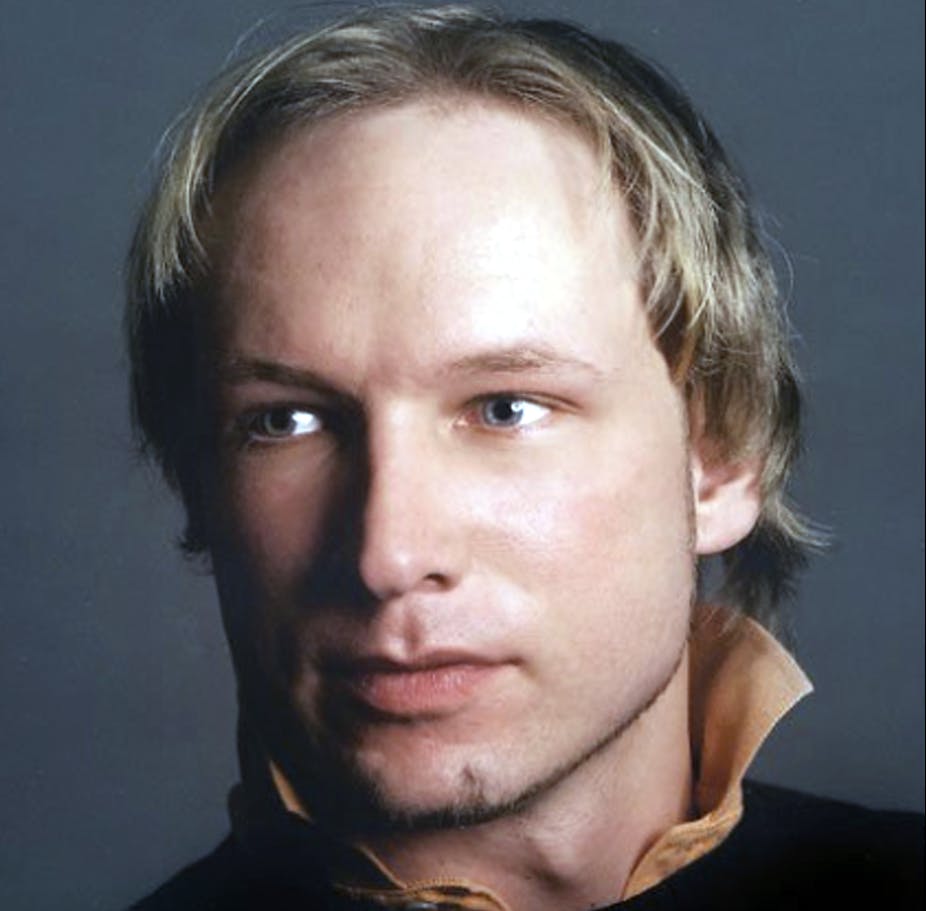As the self-confessed perpetrator of the Norway attacks, Anders Behring Breivik is due to face court today, The Conversation spoke with Dr Binoy Kampmark, lecturer in Global Studies at RMIT about whether Breivik’s actions are a sign of right-wing extremism on the rise in Europe.
Is European right-wing extremism on the rise, particularly in Scandinavia? Why has this happened?
First of all, there is definitely a rise in extreme movements. How do we know? Because it has been documented by the police forces from the various countries in Scandinavia, the Norwegian police have certainly mentioned a rise in extreme activity.
The reasons for this rise are because of a perceived encroachment of Islam specifically, and more generally, the encroachment upon the cultural and political institutions by immigrants who are deemed not to have assimilated or integrated properly in these societies.
Have there been signs before now that right-wing extremism is bubbling over?
One of the signs which has allowed such extremism to come to the fore has been the legitimisation of more conservative policies and political groups in Northern Europe. And one of those is the emergence of the Danish People’s Party as a political force and certainly the rise of its leader Pia Kjærsgaard. Of course, she herself would not justify acts of violence but there is no doubt the cultural climate has been created that would allow acts of violence, potentially, to take place.
You say the populist parties have been encouraging this kind of extremism, how have they been appealing to their supporters? Has it been through fear?
They certainly have been and just to give you a sense of where this fear stems from, one of the documents that was left behind by the accused Oslo bomber, [Anders Behring] Breivik was this enormous manifesto of his, and the title demonstrates this kind of fear that it targets, it’s called the European Declaration of Independence. That title gives you an idea about the sense of encroachment of religion, of other cultures on the independence of Europe and the European ideal, in his case specifically the Scandinavian ideal.
On this sense of encroachment‚ do people feel a loss of what being Scandinavian or being Norweigian means?
Yes, exactly, this is the whole perception about the European idea and does this particular idea incorporate the idea of cutltural tolerance – I think this is certainly something that is problematic. The emergence of fringe parties, such as the Stop the Islamisation of Europe Party and so forth, would indicate that this is a serious problem.
These groups see multiculturalism as a kind of apologist idea for ghettos, for separatism in the country and this is an idea that has gained a lot of traction, particularly in Scandinavia.
Beyond the populist parties, there are also underground extremist groups, how have these networks come about? How have they connected with each other?
They have been connecting and making full use of different medias, particularly with social networking media. They use these various channels to communicate policies, platforms and ideas. And with this particular activism, there’s a lot of traffic there that police have been monitoring and this is quite significant. According to the Norwegian police, after the Breivik shootings, there were discussions between different extremist groups across borders – in Norway, Sweden and also in Russia.
Is Islam specifically perceived as a threat?
Very much so, there’s no question about it. Islam is the enemy and that’s deemed as fundamentally problematic. It’s also worth noting that someone like Breivik has a curious mingling of culture, multiculturalism and what he terms cultural marxism. It’s important to remember this was also an attack on the Norwegian Labor government which he perceives as nothing shy of Marxist and Communist, and so he sees the culture of multiculturalism as a blend of Marxist conspiracies.
Do Breivik’s actions signal the demise of a peaceful and tolerant Scandinavia?
It may well be, it’s one of the sad realities that the tolerant regime that has been put in place in these countries has been questioned and in the most spectacular and grim way. So whether this will continue into a broader sense remains to be seen, but all governments concerned will have to now take measures to openly confront the problem otherwise it will get out of hand.
What do you think this may mean for multiculturalism in Europe? Whether this revives it or ultimately that this is the sign of the end of multiculturalism?
It could go either way, some countries will follow what Germany’s Chancellor, Angela Merkel has suggested which is the multicultural is a hard one to implement in Europe. Or after what’s happened, there may be a sense that tolerance is the only way forward. The only problem with that, of course, is that it’s fine to promote a tolerant platform, but how does a platform deal with the violence that we saw on the weekend.

